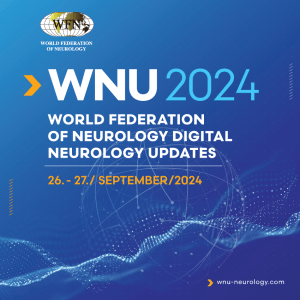
With the students away on Christmas holiday, Homerton College in Cambridge opened its doors to a host of neurology trainees and consultants, as well as psychiatric and neuropsychology colleagues and a few Care of the Elderly specialists, for the 11th Cambridge Dementia Course. Whilst three long days makes this an intense course, the approximately 80 delegates were certainly well looked after. Having table service at lunch in the great hall across from world cognitive experts and candlelit dinners beside the Christmas tree, were in themselves an experience.
The bulk of the teaching comprised a formal lecture programme. However, this was broken up with a variety of DVD sessions and interactive workshops. A quiz involving matching clinical vignettes with neuroimaging and neuropsychology ran in the background of the course. Every day I would ponder and change my choices prior to the results being revealed on the final day.
The clinical assessment of the patient with cognitive impairment was covered comprehensively and a structured approach provided. The basics of matching patient symptoms to different cognitive domains and then to a suggested pathology was covered during the first day. Furthermore, the session on bedside cognitive tests improved my understanding of test interpretation and limitations, although perhaps there was a slight bias to those tests that had been developed in Cambridge. The associated neuropsychology sessions were interactive and provided a flavour for the vast range of additional assessments available.
The two DVD sessions demonstrating cognitive assessment helped to consolidate what was learnt in the lectures. The examination of speech for patients with primary progressive aphasia and vision with posterior cortical atrophy, including the use of plastic model animals, was particularly memorable and would be challenging to understand without such video aids.
Further to the general approach taught, each of the key neurodegenerative conditions were discussed separately in depth and the ‘unusual dementias’ and autoimmune encephalitis were not missed. Particular highlights included the talks on progressive supranuclear palsy and corticobasal degeneration by Professor James Rowe who used multiple videos to demonstrate features such as early gaze paresis and automatic grasping. The talks on frontotemporal dementia by Professor John Hodges were comprehensive, covering the different phenotypes and current advances in predicating underlying brain pathology from neurolinguistics and neuroimaging.
Neuroimaging was covered over several sessions ranging from the basics to the latest advances, such as tau imaging. The lecturer’s objective to convince the audience that the role of imaging in dementia was beyond ‘excluding other cerebral pathologies’ was certainly met.
The management of patients with cognitive impairment was discussed throughout the course. There were lectures covering depression in dementia, behavioural symptoms and driving with dementia, as well as detailed management discussions in the individual condition lectures. On the other hand, the ethical issues that arise such as enteral feeding and end of life care in patients with dementia were not mentioned. However, hearing practical management advice from experienced clinicians will certainly be useful for my ongoing practice, especially in those conditions with a more limited evidence base.
This course was certainly a comprehensive review of the clinical assessment and management of patient’s with dementia and it succeeded in linking together the underlying pathology, neuroimaging and neuropsychology. I feel this course was both fascinating and relevant. I would certainly recommend it as one of the ‘must attend’ courses for neurology trainees.

